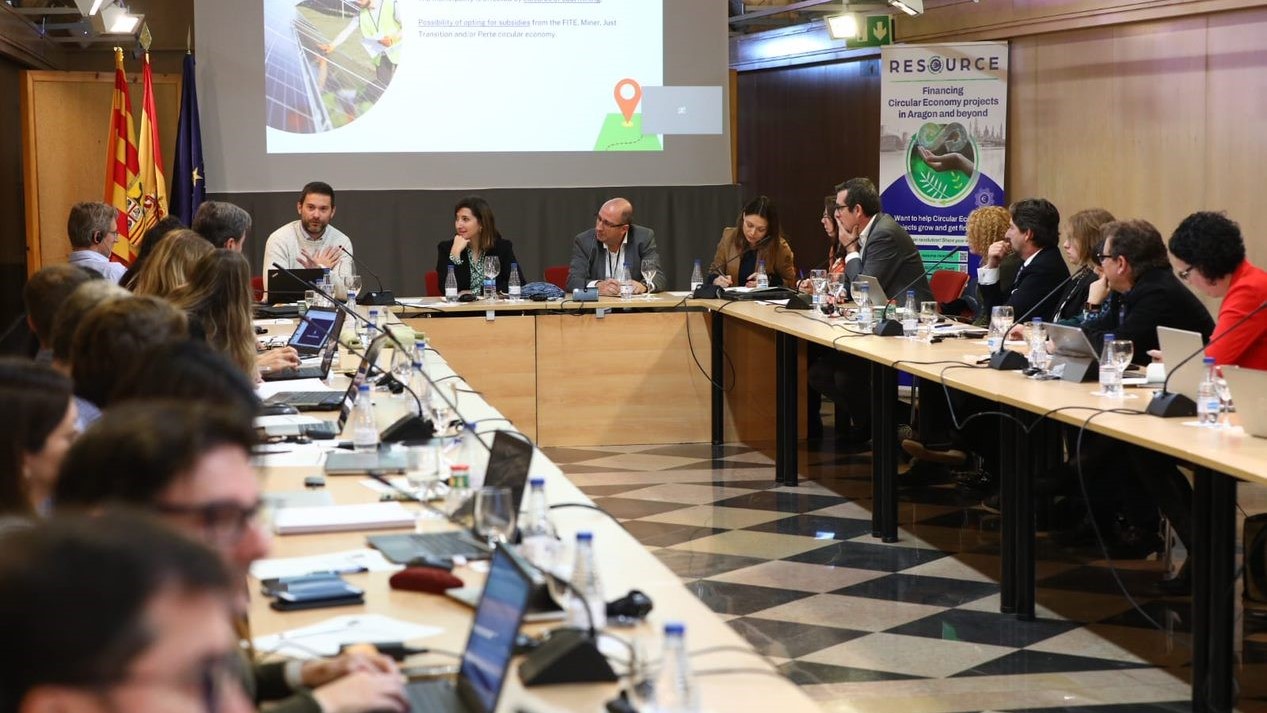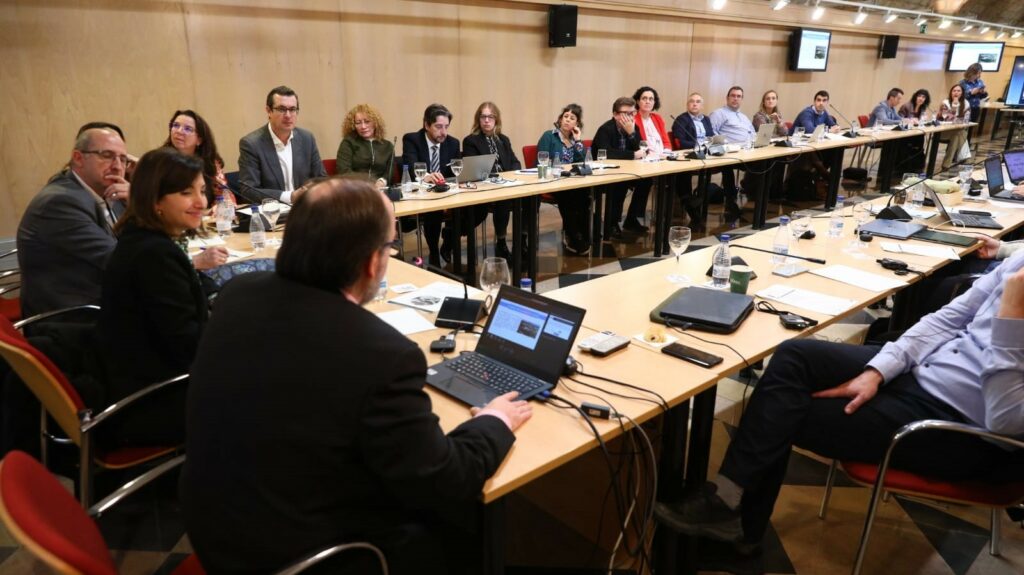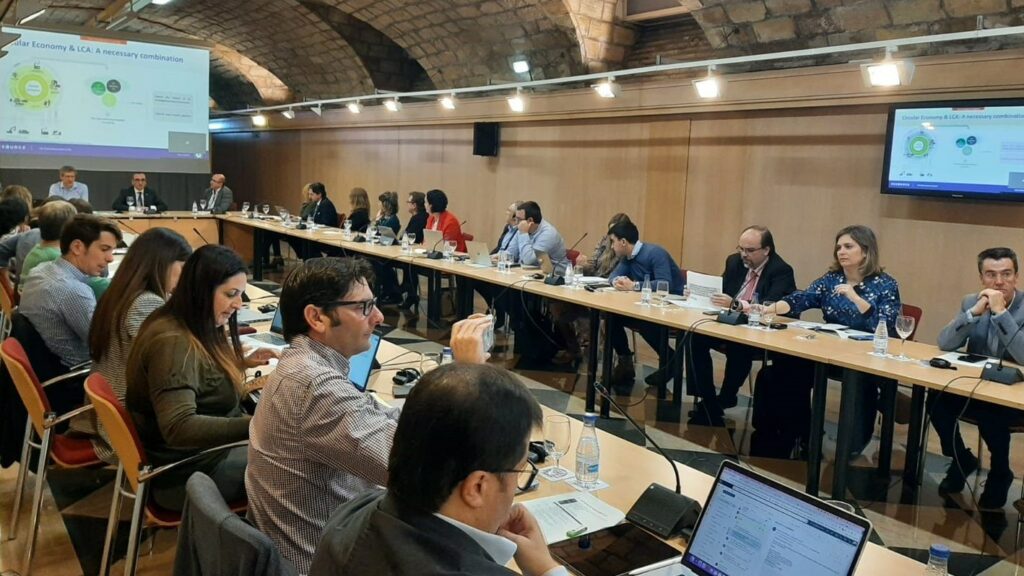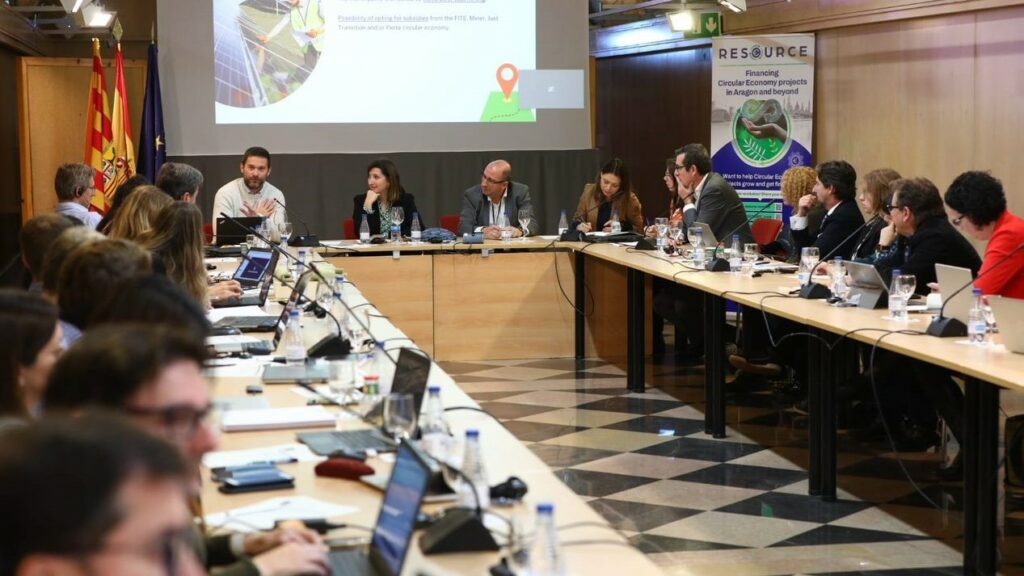RESOURCE brings together in a workshop 10 pilot projects seeking investment to reinforce its circular model
Build from Aragon a greener and more competitive Europe. It is the objective of the RESOURCE project, which will support several circular initiatives, led by companies from the Aragon region. During the first four months of the RESOURCE project, the partners have pre-selected around half a dozen of “made in Aragón” projects of high potential, willing to reinforce their strategies of circularity. The Consortium will offer legal, economical, environmental, and technical advice to those companies, to ensure their viability, help them raise private funding (twenty million in total) and extrapolate the most successful business models to the rest of the continent.
Taking advantage of the consortium meeting, held in Zaragoza end November and collocated with the International Congress on Circular Economy “Challenges and commitments of the circular economy: from Aragon to the world”, RESOURCE gathered all projects for a very special session at the facilities of the Government of Aragon, in which each company has had the opportunity to give a presentation, showing its capabilities, its current status and expectations regarding RESOURCE’s offer, each one with the same objective bring their project to a higher phase of industrialization and exploitation.
The fruitful workshop introduced the Life Cycle Analysis (LCA), a quantitative method used to measure and analyse the environmental burden products or services across their life cycle and highlights possible areas of improvement. The session was led by Associate Professor Bernhard Steubing from Leiden University, one of the consortium members.
This session was the bootstrap of one of the objectives of RESOURCE project which is to evaluate the circular potential, financial viability, and replicability of the selected circular economy projects. The LCA method will be used as a first step to provide a hotspot analysis and initial assessment of improvement potentials of the services/products the pilot project or the company intends launching in the future.
RESOURCE reúne en un workshop a los 10 proyectos piloto que buscan inversión para reforzar su modelo circular
Construir desde Aragón una Europa más verde y competitiva. Es el objetivo del proyecto RESOURCE, que dará salida a varias iniciativas circulares, lideradas por empresas de la región de Aragón. Durante los primeros cuatro meses del proyecto RESOURCE, los socios han logrado preseleccionar a una decena de proyectos “made in Aragón” de alto potencial, para reforzar sus estrategias de circularidad. El Consorcio ofrecerá asesoramiento legal, económico, medioambiental y técnico a las distintas compañías, para viabilizar las iniciativas, encontrar financiación (veinte millones de euros en total) y extrapolar su modelo de negocio al resto del continente.
Aprovechando la celebración del Congreso International en Economía Circular “Retos y compromisos de la economía circular: de Aragón al mundo“, en Zaragoza a finales de Noviembre, y además de celebrar su reunión de consorcio con todos los socios, RESOURCE ha reunido a todas las iniciativas en una sesión muy especial en las instalaciones del Gobierno de Aragón, en la que cada empresa ha tenido la oportunidad de presentarse y mostrar sus capacidades, su estado actual y plantear sus expectativas con RESOURCE. Cada una con un mismo fin: escalar y dar el salto a una fase superior de industrialización y explotación.
Durante la sesión de networking, también se dio a conocer a los proyectos piloto el “Life Cycle Analysis” (LCA – Análisis del Ciclo de Vida), un método cuantitativo que se utiliza para medir y analizar la carga medioambiental de los productos o servicios a lo largo de su ciclo de vida y pone de manifiesto posibles áreas de mejora. La sesión fue dirigida por el profesor asociado Bernhard Steubing de la Universidad de Leiden, uno de los miembros del consorcio.
Esta sesión fue el arranque de uno de los objetivos del proyecto RESOURCE, que es evaluar el potencial circular, la viabilidad financiera y la replicabilidad de inversión de los proyectos en economía circular seleccionados. El método LCA se utilizará como primer paso para proporcionar un análisis de puntos calientes y una evaluación inicial de las oportunidades de mejora de los servicios / productos que el proyecto piloto o la empresa pretende lanzar en el futuro.



